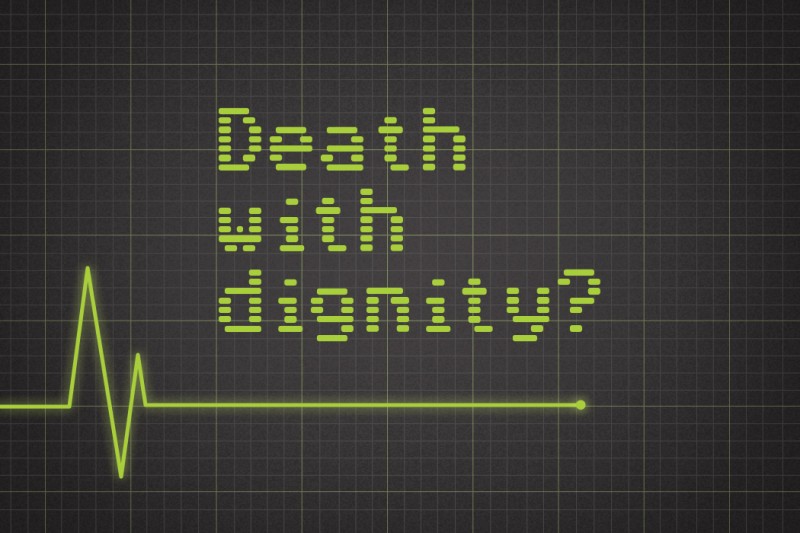
The Supreme Court of Canada
The Supreme Court got it right, prof argues
Arthur Schafer, professor of philosophy and director of the U of M’s Centre for Professional and Applied Ethics, wrote an Op-Ed for the Winnipeg Free Press that was published on Feb. 7, 2015. We re-publish it here.
The Supreme Court got it right. That was to be expected, given the strength of the evidence and arguments in this case. But the unanimity of the judges was somewhat surprising, especially given the socially conservative Harper government has appointed so many of them.
So, what did the court do? It declared constitutionally invalid the Criminal Code prohibition against physician-assisted suicide. The current ban will remain in effect for one year. That gives Parliament time to draft new legislation. If Parliament fails to pass new legislation, at the end of the year there will be no Criminal Code provisions against it.
The court’s decision will be supported overwhelmingly by Canadians. In the most comprehensive survey of Canadian public opinion on this issue, published this past autumn, Ipsos-Reid found 84 per cent of Canadians now favour physician-assisted suicide. Even more remarkable: 85 per cent of those who identified as disabled were in favour, as were 80 per cent of all Christians, including 83 per cent of Catholics. So, it turns out in contemporary Canada this most controversial of moral issues isn’t really so controversial. Indeed, virtually every public opinion survey over the past 15 years has shown Canadians strongly support the right of a competent adult who is suffering without relief to opt for assistance in hastening death.
Here is the essence of the court’s judgment. The current provisions of the Criminal Code violate a patient’s right to life, liberty and security of the person.
The Canadian Charter of Rights and Freedoms declares all Canadians have the right to life. But the Criminal Code ban on physician-assisted suicide has the effect of forcing some patients to take their own lives prematurely — because if they wait until their suffering is intolerable they fear they will no longer be capable of ending their lives without assistance. If a physician can provide a hastened death to a competent adult patient at a time of the patient’s own choosing then patients will not need to kill themselves before they are ready to do so.
Our Charter right to liberty and security of the person is also engaged. The late Gloria Taylor, one of the original plaintiffs in the case, put the central point eloquently:
“What I want is to be able to die in a manner that is consistent with the way that I lived my life. I want to be able to exercise control and die with dignity and with my sense of self and personal integrity intact. I want to be able to experience my death as part of my life… I do not want the manner of my death to undermine the values that I lived my life in accordance with.”
In other words, autonomous individuals should be free to decide their own fate. When an important life choice concerns a private matter and when the individual making that choice is suffering unrelievably, the state should not interfere unless it can prove interference is necessary to protect vulnerable third parties.
The Supreme Court agreed fundamentally with Taylor’s perspective: “An individual’s response to a grievous and irremediable medical condition is a matter critical to their dignity and autonomy. The prohibition denies people in this situation the right to make decisions concerning their bodily integrity and medical care and thus trenches on their liberty. And by leaving them to endure intolerable suffering, it impinges on their security of the person.”
At the same time, the court acknowledged the right and duty of Parliament to protect vulnerable persons from being induced to commit suicide at a time of weakness.
When the case was originally tried in British Columbia, there were hundreds of pages of testimony from expert witnesses. Justice Lynn Smith assessed the evidence and found it disproved slippery-slope fears. A blanket probation against doctor-assisted suicide is simply not necessary in order to protect vulnerable person against error and abuse. The careful safeguards that have been adopted by many legal jurisdictions — such as in the U.S. states of Oregon and Washington, and in a number of European countries — are working well. They allow society to respect the autonomy of competent adults and at the same time to protect vulnerable persons. Indeed, it is arguable that vulnerable persons are better protected when a total ban is replaced by individual freedom of choice combined with properly designed and administered safeguards.
A final word of caution. This may not be the end of the story. If the Harper government is re-elected and if it attempts to subvert the spirit of the Supreme Court’s ruling by drafting regulations that are excessively restrictive — so that almost no one qualifies for physician assistance — there could well be a second constitutional challenge. Indeed, the case could ping-pong between the government and the plaintiffs for many years to come. The ultimate result is not in doubt, however; the liberty to make one’s own end-of-life decisions will be protected, even if it takes additional court struggles to make that principle a reality.








I attended the UM President’s Visionary Conversations series (Evolutions of the Rights Culture) with my daughter who is a palliative care nurse in the community. You point to the safeguards that are in place in Washington and Oregon. Dr. Henteleff did not appear as confident in terms of the experience of medical personnel who have been involved in endorsing a patient’s right to die in the U.S. (e.g. level of counselling experience, palliative care experience). Working with the dying, my daughter has mixed feelings and recognizes that there are times when, despite all available modern medicines, a patient suffers intensely. She also recognizes that much can be done to alleviate suffering for most of her patients, and that the real slippery slope may be the erosion of funding to promote palliative care.
“The court’s decision will be supported overwhelmingly by Canadians. In the most comprehensive survey of Canadian public opinion on this issue, published this past autumn, Ipsos-Reid found 84 per cent of Canadians now favour physician-assisted suicide. Even more remarkable: 85 per cent of those who identified as disabled were in favour, as were 80 per cent of all Christians, including 83 per cent of Catholics.”
I don’t know of one Catholic who supports the Supreme Court’s ruling on this. It is very interesting to note the this poll was commissioned by the group “Dying with Dignity” whose mission is “helping people achieve quality in dying.” 2500 Canadians were surveyed for this poll, a paltry representation that can hardly justify the claim that “the majority of Canadians” support this.